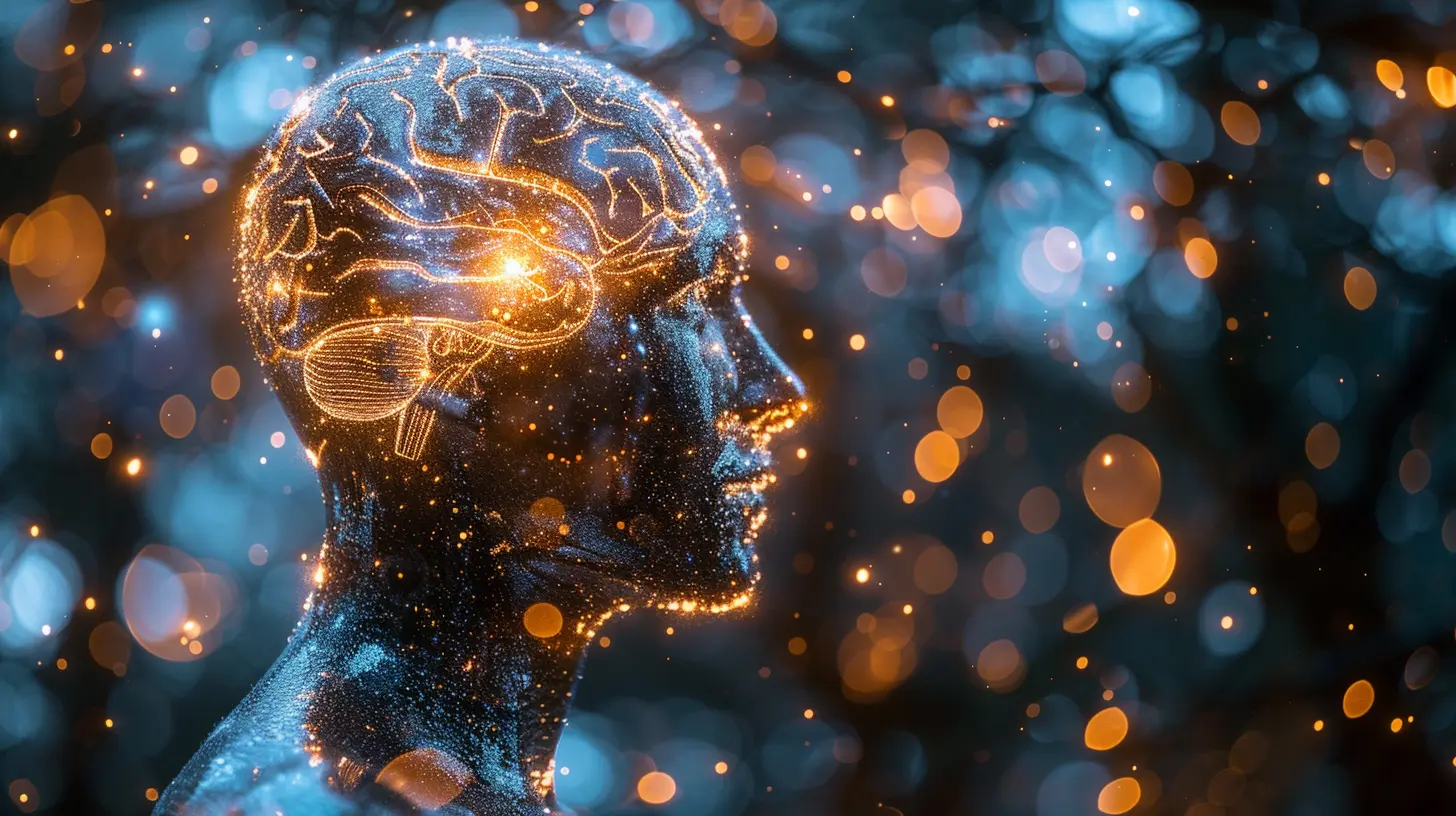The Impact of Social Connections on Your Cognitive Clarity
2 July 2025
Have you ever noticed how a heartfelt conversation with a close friend can leave you feeling lighter, more energized, and maybe even a little sharper? It's not just in your head—well, actually, it is! Your social life plays a massive role in shaping your cognitive clarity, memory, and overall brain function.
We often focus on brain-boosting activities like puzzles, good sleep, and a nutrient-rich diet, but what about the power of relationships? Science says that staying socially connected is just as crucial for mental sharpness as eating your veggies and hitting the gym. Let’s dive into how our social bonds influence cognitive clarity and why meaningful connections should be a top priority. 
Why Social Connections Matter for Cognitive Health
Our brains are wired for connection. From the moment we're born, we rely on others to help us navigate the world. As we grow older, these connections continue to play a crucial role in shaping our cognitive abilities.Loneliness and social isolation have been linked to cognitive decline, higher stress levels, and even memory loss. On the flip side, engaging in fulfilling social relationships can help protect against cognitive impairment, keeping your brain sharp and resilient as you age.
But why does this happen? It all comes down to brain function and stimulation. Social interactions challenge the brain in ways that solitary activities simply don’t. They require quick thinking, emotional intelligence, and the ability to process multiple forms of communication at once—think tone, facial expressions, and body language. This kind of mental "workout" strengthens neural connections, reducing the risk of cognitive decline. 
The Science Behind Social Connections and Brain Power
1. Social Interaction Keeps Neural Pathways Strong
Think of your brain like a muscle. The more you use it, the stronger it gets. Engaging in conversations, debating opinions, and even sharing stories force different areas of your brain to stay active.Research suggests that interacting regularly with others can help maintain and strengthen neural networks, reducing the chances of cognitive decline. In fact, studies show that older adults with strong social ties tend to perform better on memory and cognitive tests than those who are socially isolated.
2. Socializing Reduces Stress and Anxiety
Chronic stress is a silent brain killer. When you're stressed, your body releases cortisol, a hormone that, in excess, can shrink the hippocampus—the part of the brain responsible for memory and learning.Strong social connections act as a buffer against stress. When you talk through your worries with a friend, your brain releases oxytocin, the "feel-good" hormone that lowers stress levels. Less stress means a healthier brain, better focus, and greater cognitive clarity in everyday life.
3. Meaningful Conversations Improve Critical Thinking
Ever had a deep conversation where you had to really think, analyze, or even defend your perspective? Engaging in meaningful dialogue strengthens critical thinking skills and promotes cognitive flexibility.When you're exposed to different viewpoints, your brain has to work harder to process new information, challenge biases, and reframe ideas. This kind of mental engagement keeps cognitive abilities sharp and adaptable.
4. Friendships Encourage Healthy Habits
Let’s be real—your social circle often influences your lifestyle choices. Hanging out with health-conscious friends can boost your commitment to wellness, from regular exercise to maintaining a balanced diet.People with strong social connections are more likely to engage in brain-healthy behaviors like staying physically active, eating nutritious foods, and maintaining good sleep hygiene—all of which contribute to better cognitive clarity. 
The Cognitive Consequences of Loneliness
If strong social ties enhance brain power, then isolation does the opposite. Loneliness isn’t just an emotional struggle; it has real, measurable effects on brain health.Studies show that prolonged social isolation can lead to cognitive decline, increased risk of dementia, and even depression. Without social engagement, the brain doesn’t get the stimulation it needs, leading to a decline in mental sharpness and cognitive flexibility.
The good news? It's never too late to build and strengthen connections. Even small efforts—like calling a friend, joining a community group, or even chatting with a neighbor—can significantly improve cognitive resilience. 
How to Strengthen Your Social Connections for a Sharper Mind
1. Prioritize Face-to-Face Interactions (Whenever Possible)
Texting and social media are great, but nothing beats in-person interactions. Face-to-face conversations engage multiple senses—hearing, sight, and even touch—enhancing cognitive engagement.2. Join a Group or Club
Whether it’s a book club, a hiking group, or a dance class, being part of a community provides regular opportunities for social interaction. Plus, learning new activities alongside others adds an extra cognitive boost.3. Check In on Loved Ones Regularly
Busy schedule? Even a simple phone or video call can strengthen bonds and keep your brain engaged. Make it a habit to check in with friends and family every week.4. Engage in Meaningful Conversations
Small talk is fine, but deep, meaningful conversations stimulate the brain on a different level. Try discussing new ideas, sharing experiences, or even debating current events to keep your mind sharp.5. Volunteer or Help Others
Helping others isn't just good for the soul—it’s great for your brain too! Volunteering offers a sense of purpose and connection, both of which contribute to mental clarity and overall well-being.Final Thoughts
Your social life is more than just fun—it’s an essential part of cognitive health. Strong, meaningful connections provide mental stimulation, reduce stress, and promote healthy habits, all of which contribute to sharper thinking and improved memory.So, if you ever needed a reason to call up old friends, make new ones, or spend more quality time with loved ones, here it is: your brain will thank you for it.
At the end of the day, staying socially engaged isn’t just about enjoyment—it’s about investing in a healthier, clearer, and more vibrant mind.
all images in this post were generated using AI tools
Category:
Mental ClarityAuthor:

Laurie Barlow
Discussion
rate this article
1 comments
Winona Curry
Social connections significantly enhance cognitive clarity by fostering mental stimulation, reducing stress, and promoting emotional well-being. Engaging with others can sharpen focus and creativity, ultimately leading to improved cognitive function and memory retention.
July 25, 2025 at 2:38 AM

Laurie Barlow
Thank you for your insightful comment! I completely agree—social connections play a vital role in enhancing cognitive clarity and overall mental health.


